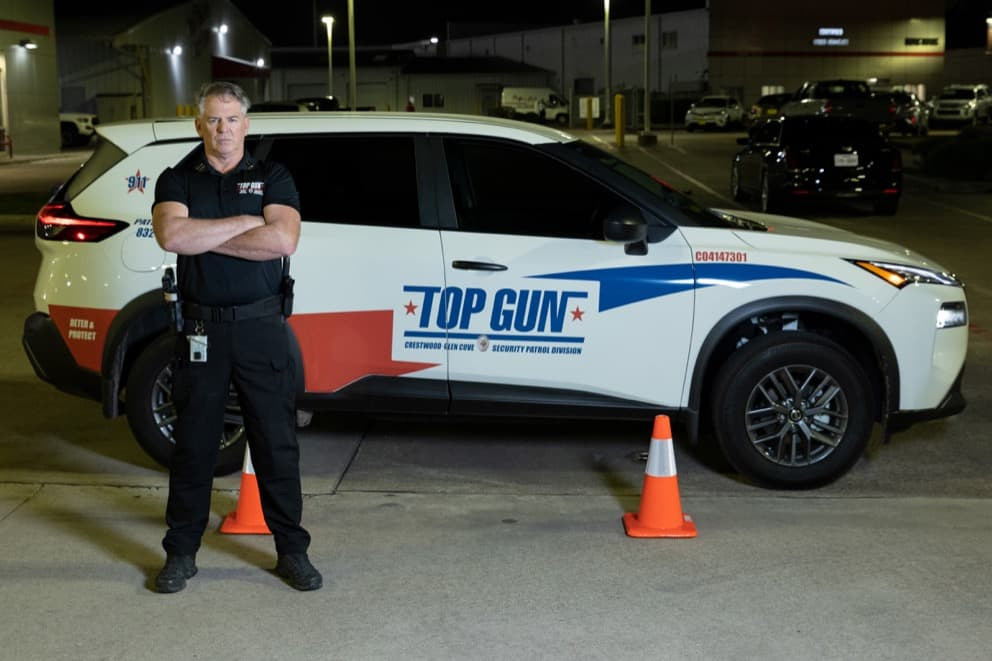
Security Guard vs. Police Officer

Security is a vital component of modern society, serving as a foundation for maintaining order and protecting individuals and property. Whether through the watchful eye of a security guard or the authoritative presence of a police officer, the roles of these two professions often overlap in the public’s perception. However, the distinctions between them are significant, from their responsibilities to their training and legal authority. Understanding these differences is essential for both those considering careers in security or law enforcement and the general public.
Roles and Responsibilities
Security Guard
Security guards primarily focus on the protection of private property and ensuring the safety of the environments they are hired to oversee. Employed by businesses, individuals, or organizations, their main goal is to prevent incidents such as theft, vandalism, or trespassing. Security guards are often tasked with monitoring entry points, conducting surveillance, and enforcing the policies set by their employers. While they may intervene to stop suspicious activity or de-escalate situations, their authority is generally limited. For instance, security guards do not have the legal power to make arrests, although they may detain suspects in specific situations until law enforcement arrives. Their role is typically centered on observation, prevention, and reporting any violations of law or company rules.
Police Officer
Police officers, in contrast, carry the weight of law enforcement behind their actions. Tasked with upholding local, state, and federal laws, their responsibilities extend far beyond the confines of private property. Police officers are called upon to respond to emergencies, investigate crimes, and restore public order when necessary. Their authority is vast, allowing them to make arrests, conduct searches, and intervene in a wide variety of situations. Unlike security guards, police officers are directly involved in the legal process, from filing charges to testifying in court. Their role in society is to ensure the safety of the general public and to enforce laws that maintain peace and justice within their jurisdiction. Police officers often deal with high-stress situations, ranging from traffic stops to violent crimes, requiring a broad set of skills and a strong sense of duty to protect and serve.
Training and Certification Requirements
Security Guard
The training requirements for security guards can vary significantly depending on the state and the specific job. Generally, the training for security guards focuses on basic security procedures, such as patrolling, monitoring, and incident reporting. Some guards may also receive instruction in communication skills, conflict resolution, and de-escalation techniques, as these are critical for handling situations that arise on the job. In states that regulate security guards more strictly, such as California or New York, security personnel may be required to undergo specific training programs and obtain certification before they can work. These certifications typically cover legal responsibilities, ethical behavior, and emergency response protocols. Depending on the employer, additional training may be provided for specific situations, like working in environments with high-risk factors or handling specialized equipment. Overall, the level of training for security guards tends to be more straightforward compared to that of police officers, reflecting the more limited scope of their duties.
Police Officer
In contrast, becoming a police officer involves rigorous and extensive training that prepares individuals for the complexities of law enforcement. Prospective officers must attend a police academy, where they undergo a comprehensive program that includes instruction in criminal law, constitutional law, and civil rights. Additionally, police officers receive in-depth training in physical fitness, firearms handling, self-defense, and emergency response. Police academy training can last several months and requires passing both academic and physical fitness tests. After completing the academy, new officers typically enter a field training program where they work under the supervision of experienced officers to gain practical, on-the-job experience. Continuous education is also a crucial part of a police officer’s career, as they may need to undergo specialized training for particular roles, such as detective work, SWAT team operations, or K-9 handling. The comprehensive nature of police officer training reflects the broad authority and responsibilities they hold in upholding the law.
Jurisdiction and Scope of Authority
Security Guard
The jurisdiction of a security guard is typically limited to the private property or premises that they are hired to protect. Their authority is conferred by their employer, not by the government, meaning their power to enforce rules is often restricted to the company's policies and procedures. Security guards are primarily responsible for monitoring for signs of criminal activity, preventing incidents like theft or vandalism, and ensuring that individuals on the property are safe. They are expected to act as a visible deterrent to potential wrongdoers and to report any illegal activity to the appropriate authorities. In most cases, security guards do not have the legal authority to make arrests, although they may detain individuals under specific circumstances, such as during an active crime, until the police arrive. Their role is centered on observation and reporting, with limited authority to intervene directly in legal matters.
Police Officer
Police officers operate with far broader jurisdiction and legal authority, which allows them to enforce laws across entire cities, counties, states, or even nationally, depending on their position and agency. They are government officials empowered to uphold and enforce local, state, and federal laws. Police officers can investigate crimes, issue citations, make arrests, and conduct searches within their legal boundaries. Their duties often require them to enter both public and private spaces as part of criminal investigations or emergency responses. The scope of their authority extends to maintaining public safety, protecting citizens, and pursuing justice, making them central figures in the legal and criminal justice systems. Police officers are trained to manage a wide range of situations, from routine traffic violations to violent criminal activity, and their jurisdictional authority enables them to take legal action in response to such incidents.
Work Environment
Security Guard
The work environment for security guards tends to be more controlled and predictable compared to that of police officers. Security guards are typically stationed at specific locations, such as office buildings, shopping centers, hospitals, or event venues, where they monitor and protect the property. Depending on their assignment, they may work alone or as part of a team, often performing routine patrols, checking surveillance equipment, and ensuring that access points are secure. While the work can sometimes be mundane, security guards must remain vigilant and prepared to respond to potential threats or incidents at a moment's notice. In some settings, such as night shifts at quiet facilities, the job may involve long periods of observation with little action. However, in more dynamic environments like concerts or large events, security guards may encounter more active and challenging situations that require quick decision-making and crowd control.
Police Officer
Police officers experience a far more dynamic and unpredictable work environment. Their job requires them to be out in the community, patrolling streets, responding to emergency calls, conducting investigations, and interacting with the public in various capacities. On any given day, a police officer could face anything from routine traffic stops to high-risk situations such as armed confrontations or domestic disputes. The nature of their work requires them to be constantly on alert, ready to adapt to rapidly changing circumstances and make split-second decisions that could impact public safety. Police officers also work in a wide range of settings, from urban neighborhoods and rural areas to crime scenes, accident sites, and even courtrooms. This diversity in their work environment requires a high degree of flexibility, resilience, and the ability to manage stress in potentially dangerous situations.
Tools and Equipment
Security Guard
Security guards typically carry a more limited range of tools and equipment than police officers, as their role is primarily focused on observation and deterrence rather than direct law enforcement. The specific tools a security guard carries can vary depending on their employer and the nature of the assignment. In general, most security guards are equipped with radios or other communication devices to stay in contact with their team and report incidents to law enforcement if necessary. Other common tools include flashlights, notebooks for reporting, and basic first-aid supplies. In some cases, security guards may carry non-lethal defensive equipment such as batons, pepper spray, or handcuffs, particularly if they work in high-risk environments. However, security guards rarely carry firearms unless they are specifically licensed and employed as armed security personnel, which usually requires additional training and certification.
Police Officer
Police officers are equipped with a wide array of tools and equipment to handle the broad scope of their duties, including the ability to use force if necessary. Standard equipment for police officers includes firearms, tasers, batons, and handcuffs, which are used to detain or control individuals who are suspected of criminal activity or pose a threat to public safety. Additionally, police officers typically carry radios for communication with dispatch and other officers, as well as body cameras to record interactions with the public. They also use patrol cars equipped with lights, sirens, and computers that allow them to access databases and file reports while on the move. In certain specialized roles, police officers may use even more advanced equipment, such as K-9 units, riot gear, or SWAT vehicles, depending on the situation. The variety of tools and equipment at their disposal reflects the police officer's authority to enforce laws and protect the community in both routine and emergency situations.
Ready to Protect and Serve? Start Your Security Career with Top Gun Academy!
Whether you're aiming to guard private property or protect others as a bodyguard, understanding the path ahead is key. At Top Gun Security Academy, we offer top-tier training programs that will equip you with the skills you need to succeed as a security professional. Ready to take the next step? Contact us today to learn how you can embark on a fulfilling career protecting what matters most.